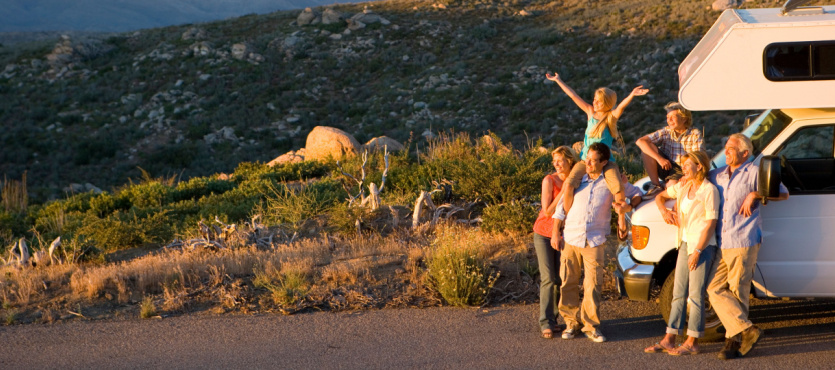Going on solo or family road trips is a fantastic experience that many people enjoy and look forward to. While you could stop at a hotel in the evenings to catch a good night’s rest, driving an RV means you can stay on the road longer and spend the night quite literally wherever you want (barring any locations that don’t accept any overnight parking).
RV camping is not only a great way to elevate your road trips and camping experiences, but it can also allow you to wander off the beaten path in complete comfort, as you will have a kitchen, bathroom, and bedroom all with you on the move. If you are new to RV camping and driving, here are a few tips to help you get started to get the most out of your camping and road trips.
1: Get Familiar With Your RV
While you may be a seasoned driver, driving an RV is a different experience from driving a normal passenger vehicle like a sedan or even an SUV. They are much larger vehicles that accelerate and brake slower, with much larger blind spots that you need to be mindful of. If this is your first time driving an RV, you should first spend time practicing in the vehicle and grow familiar with its handling before you take it on a long camping trip.
2: Bring Tools and Spare Parts
Make sure you pack well and have anything you could need later on, like extra fuses, spare light bulbs, jumper cables, and your usual assortment of tools if you need to fix anything inside like you would at home. Make sure to order any unique RV parts ahead of time, otherwise, you run the risk of running into problems without them and facing a long wait time for replacements to arrive.
3: Do You Need Water?
When it comes to camping or going on a road trip with an RV, you might think packing water is a no-brainer. However, water is heavy, and you must be mindful of how much weight you are loading onto your RV. Try avoiding packing too much water if the places you plan to visit offer water onsite, and prioritize food, clothes, and camping gear instead.
4: Mind Your Load Limits
If you are a first-time RV owner, you may not think about the weight limits of your RV. You should familiarize yourself with your RV’s Available Payload Capacity and its Towing Capacity to ensure you are operating safely and legally. The last thing you need is to overburden your RV and run into problems down the road that ruin your planned fun weekend getaway.
5: Reserve Your Camping Spot
Just because you have an RV and can go places with it doesn’t always mean you can camp wherever you want. If you are planning to stay at a campground for the night, make sure to reserve your camping spot for the night. Furthermore, reserving ahead of time could net you a better spot that is closer to any amenities the camping grounds might have available.
6: Setting Up in the Dark
If you are new to RV camping, the last thing you need after a long day of driving is to set up in the dark without any prior experience. This is a challenge even for seasoned campers, so always try to arrive before dark if possible. If it is unavoidable, make sure to bring camping lights so that you at least have some light to work with when setting up your RV for the night.
7: Electrical Outlets
You might be surprised to learn that there is no actual standard for electrical outlets at campgrounds and RV parks. That being the case, you should call ahead to see what outlets are available at any places to plan to stay the night to make sure you can keep power running to your RV at all times.
Find the Right Campgrounds For You
If you plan to visit Niagara Falls next year during your RV road trip, Campark Resorts offers a fully featured campground just 5 kilometers (3 miles) away from the famous waterfalls. Contact them today to learn more about their RV sites.


